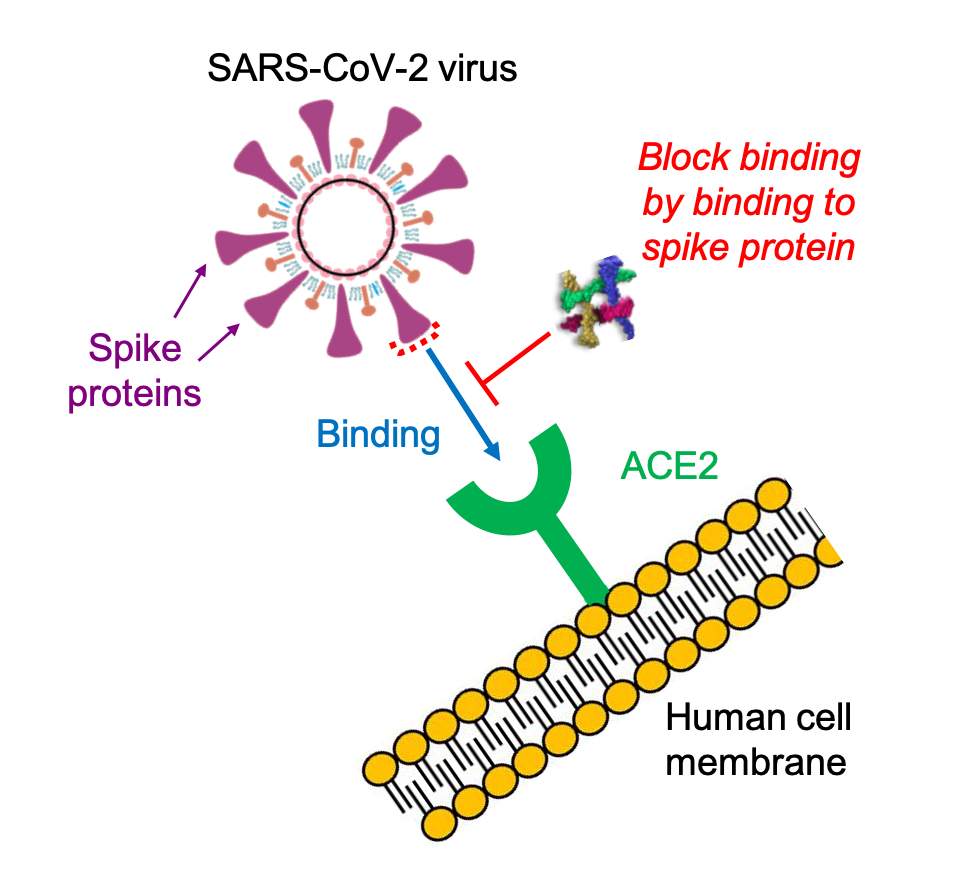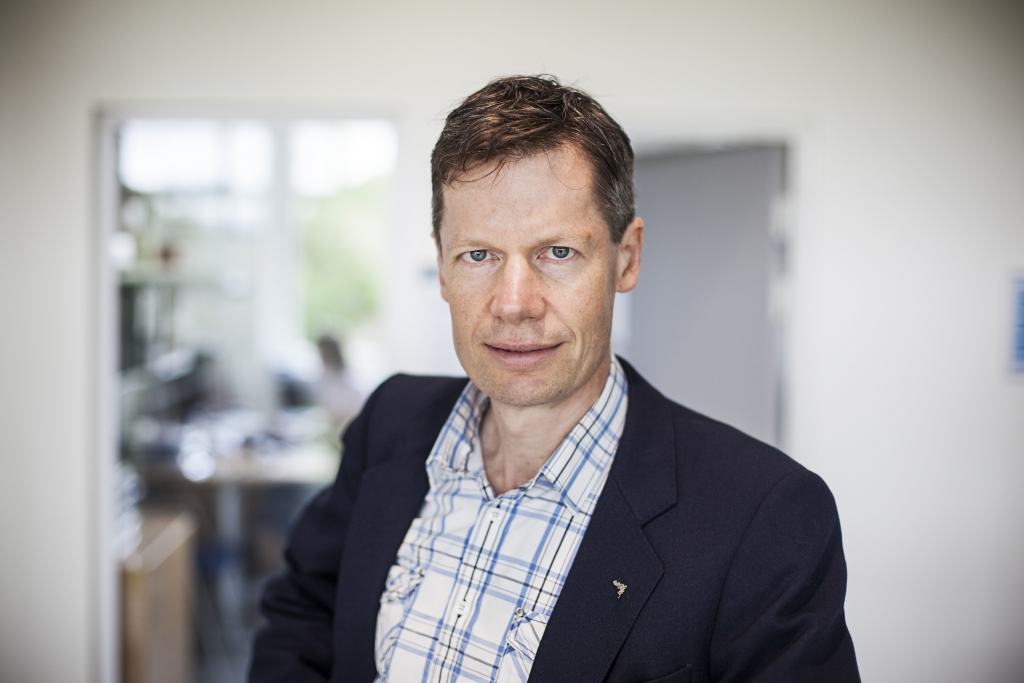DKK 3.8 million for collaboration on fighting COVID-19
Daniel Otzen and collaborators, Jørgen Kjems and Victoria Birkedal from the Interdisciplinary Nanoscience Center (iNANO) and the company Fida Biosystems, have received DKK 3.8 million from the Innovation Fund Denmark to develop a screening system to identify drugs that are able to combat COVID-19.


The grant is for a new project called AntiCovid where the project team will develop and implement an efficient technology to identify substances capable of fighting COVID-19 infections in humans.
The current COVID-19 pandemic is caused by the coronavirus called SARS-CoV-2, for which no therapy or vaccine is currently available. The virus infects human cells by binding to a specific protein (angiotensin converting enzyme 2 or ACE2) on the surface of human cell. It does so via its spikes projecting from the virus (see figure).
The strategy to combat COVID-19 in this project is to find substances that can block this contact by wedging in between the virus spikes and ACE2.
Efficient method for screening 50,000 substances
In the search for the substances an advanced method called FIDA (Flow-Induced Dispersion Analysis) will be used. It is a so-called microfluidic technique which, by using fluorescence, can measure whether and how well proteins and other macromolecules bind to each other in solution.
The method requires very modest amounts of substance and can be easily automated to test a large number of substances, which together makes it a new and very promising technique for developing new drugs.
Jørgen Kjems’ group is currently developing RNA molecules (aptamers) to bind to the spike protein. In addition, a library of approx. 50,000 different small molecules provided by Mads Hartvig Clausen at DTU, will be screened. The best substances from this preliminary study will be investigated in more detail and the very best binders will be identified. These will be analyzed by single-molecule techniques developed by Victoria Birkedal.
“The selected compounds will finally be assembled into larger complexes using constructs made by RNA building blocks. They will then be tested on actual corona virus particles as an introduction to subsequent clinical studies. If all goes well, we will have an efficient, user-friendly, and robust platform technology, which will be adaptable to any R&D laboratory in industry and academia,” explains Daniel Otzen.
New ideas emerge from extraordinary circumstances
Besides the novelty of the project idea itself, setting up the consortium has been an inspiring process. “This proposal has shown that we at iNANO are able to mobilize resources for high-level interdisciplinary research and apply it to urgent societal challenges,” says Daniel Otzen.
The DKK 3.8 million comes from the Innovation Fund Denmark's extraordinary Grand Solutions call in connection to the COVID-19 pandemic. The money will co-fund postdocs and PhD students in a research team consisting of three research groups from Aarhus University (based at iNANO but also affiliated to Molecular Biology and Genetics as well as Chemistry), and the company Fida Biosystems.
Read about other funding granted for COVID-19 research at iNANO:
- AU steps up the virus research with millions from the Carlsberg Foundation
- Fundings for prediction of COVID-19 infection and clinical severity
- Fight-nCov project against corona virus
Contact
Professor Daniel Otzen,
Interdisciplinary Nanoscience Center (iNANO) and Department of Molecular Biology and Genetics
Phone: 2072 5238
Mail: dao@inano.au.dk
